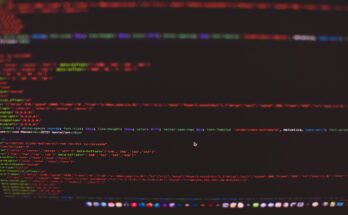If you’re anything like me – always tinkering, optimizing, and confidently declaring “I’ve got this” – chances are you once set up a local proxy like apt-cacher-ng to speed up updates. However, encountering an apt update proxy error on Ubuntu can sometimes put a dent in that efficiency. At the time, it felt brilliant. Blazing fast. Efficient. A true sysadmin masterstroke.
But eventually, it led to the dreaded apt update proxy error and some classic Ubuntu headaches.
Fast forward to today, and that proxy? Long gone. Maybe it was running on a Raspberry Pi that quietly gave up. Maybe it’s buried somewhere in your tech graveyard drawer labeled “I’ll fix it one day.” Meanwhile, your loyal Ubuntu system is still trying to reach it every time you run apt update, only to be ghosted by the apt update proxy error that Ubuntu users often encounter.
If your terminal is throwing errors like this, apt update proxy error, Ubuntu message:
Err:3 http://archive.ubuntu.com/ubuntu noble InRelease
Could not connect to 100.71.86.54:3142 (100.71.86.54), connection timed outThen yes, you’re still trying to talk to your long-lost proxy. That’s your forgotten genius coming back to bite you.
But don’t worry – it’s an easy fix. Let’s undo that bit of over-enthusiastic optimisation and get your updates flowing again, overcoming the apt update proxy error Ubuntu issue for good.
Let’s fix that! 👇
Table of Contents
Table of contents
Understanding the Issue
Ubuntu’s apt package manager uses configuration files under /etc/apt/apt.conf.d/ to define various behaviours. In many environments, a file named 01proxy exists and includes a line like:
Acquire::http::Proxy "http://100.71.86.54:3142";This setting tells apt to fetch all package data through a specific proxy server. When that proxy is offline, unreachable, or misconfigured, apt operations like update, install, or upgrade will fail, often resulting in what is known as the apt update proxy error, or the Ubuntu error.
Note, however, that starting with Ubuntu 23.10 (Mantic Minotaur) and now in 24.04 and 24.10 (Noble), Ubuntu has transitioned to the new “.sources” format located at:
/etc/apt/sources.list.d/ubuntu.sourcesYou can check the docs here at Ubuntu for more.
Steps to Fix the Problem
Step 1: Remove the Proxy Configuration File
After making a backup of this file, open a terminal and run:
sudo rm /etc/apt/apt.conf.d/01proxyThis command removes the file, forcing the system to use the unreachable proxy server.
Step 2: Refresh the Package Lists
After removing the proxy setting, run:
sudo apt updateYou should now see output from public mirrors like archive.ubuntu.com or security.ubuntu.com, without any reference to the 3142 proxy, resolving your apt update proxy error Ubuntu issue.
Optional: Additional Checks
- If you’re in a corporate environment, a proxy might be required. Speak to your IT team before removing any proxy settings.
- To ensure there are no other hidden proxy configurations, you can check environment variables with:
env | grep -i proxyUnset any values you find that are not needed.
You May Also Be Interested In
Wrapping Up
Removing an old or unreachable proxy setting is not only a quick fix but also a satisfying one, especially when it resolves those head-scratching apt update errors. Once the proxy is out of the way, your Ubuntu machine can finally get back to doing what it does best — fetching updates directly from the official mirrors, with no detours, delays, or dead ends.
That said, if you’re working in a managed or corporate environment, it’s important to double-check with your system administrator before making changes. After all, the proxy might have been intentionally configured for network compliance or control. However, if this was your long-forgotten experiment in local caching, then well done — you’ve just cleaned up after past-you.
As a result, your updates should now run smoothly, and your command line can breathe a well-earned sigh of relief. So go ahead — patch away, stay secure, and say goodbye to the infamous apt update proxy error that has frustrated so many Ubuntu users.


